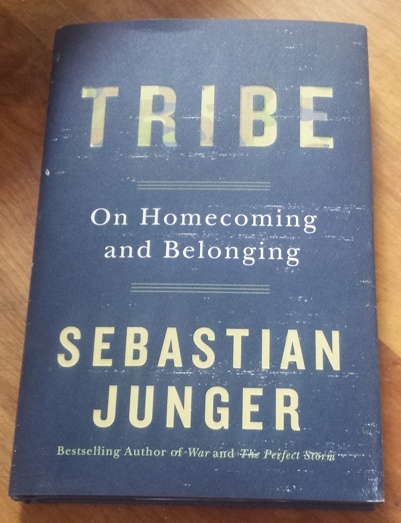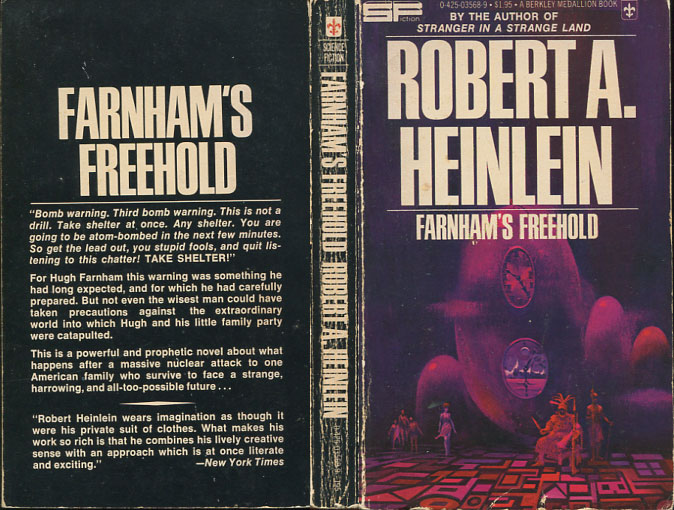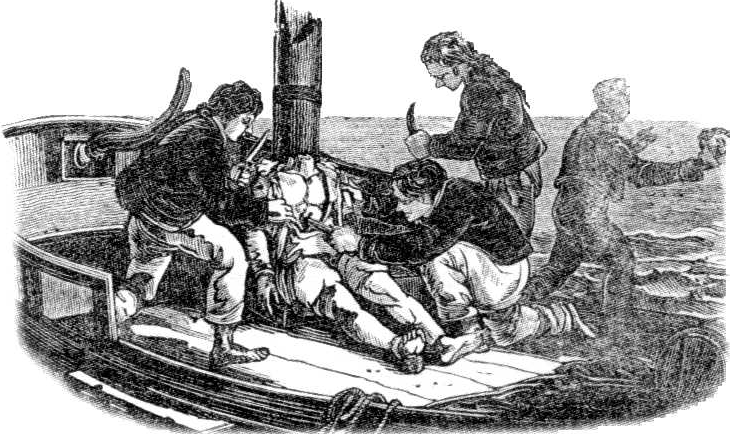This is the book that I think could widely be regarded as the gateway drug into preparedness fiction, and probably to some degree the gateway to developing an interest in preparedness in the first place.
I first read AB when I was 13 years old and it solidified a feeling and interest I’d only recently become aware. (No, that OTHER feeling.) Written back in the halcyon days of the late 1950’s, AB is probably the ‘cleanest’ of the nuclear war novels that followed. By ‘clean’ I mean that there is an absence of the sort of brutal imagery that we’ve come to expect in books about nuclear war. The violence is minimal and not graphic, no one dies of slow starvation, the citizenry isn’t roused to action against a cannibal army, and the characters don’t experience a dramatic renaissance of personal development that leads them into becoming some sort of ‘Red Dawn’-esque ersatz militia. The book simply tells the story a a man, his neighbors, and how they cope with the aftermath of a nuclear war that devastates their region.
For people like you and I who have read tons of literature on the subject, and have a basement full of freeze drieds, you’ll find the book to be a bit frustrating at times with the mistakes or lack of insight that the charcters show to their situation. But the book wasn’t written for survivalists…rather it was written to encourage people to think about survival. The author, whose real name was Harry Frank, wrote the book from the perspective of someone who believed that Americans needed to be more proactive in preparing for a possible nuclear exchange with the Soviets. To this end he wrote AB to illustrate his points.
The action in the book takes place mostly in Florida, in a small town where the main character resides. The cast of characters include pretty much everyone you would see on an episode of The Andy Griffith Show in Mayberry. One interesting thing to note is the 1950’s-era way in which blacks are portrayed. Hey, it was 1959 when this thing was written and ‘colored’ was considered a perfectly good word back then. Notably, Frank addresses this issue in a very forthright way – the poor black family down the road winds up being an asset to the community as much as any other group and is never treated as anything less than equals.
What’s so wonderful about AB is that unlike many end-of-the-world books, it wasn’t really written with the idea that the main character (or any character, really) has any background at all in survivalism. It seems like in every book there’s always that one character..usually a retired military veteran of some kind…who winds up turning the whole crew into competent guerilla fighters (Lights Out, One Second After, etc.) That sort of thing is absent in AH. Oh, there’s a retired admiral that is a good supporting character but his influence isn’t anything like what other books in this genre show.
Alas Babylon isn’t a difficult read…I read it at 13-years old and found it to be light reading of the easiest kind. But it’s an enjoyable read. The characters are fairly simple, with no real backstory beyond a paragraph or two about their initial history, but it’s still a good story and there is enough variety in the characterizations that it’s easy to find someone you can empathize with.
Good fiction, as I’ve said, make you think. Alas Babylon was one of the first books I’d read in this genre and it certainly made me think about things I hadn’t thought about before. As the book progresses, characters lament the loss of their batteries, matches, soap, fishhooks, and all those other little consumables that we take fro granted. It’s a good example of how the small details in life get overlooked and by the time you realize you should have stocked up on salt (or .22 ammo or instant coffee) it’s too late.
Having been around for almost 60 years it is not difficult to find a used copy of Alas Babylon in pretty much any used bookstore. Even if it doesn’t sound like something you would be interested in reading…not enough zombies or gunplay for you, perhaps…..it is still absolutely worth reading simply because it is the book probably most singlehandedly responsible for influencing most survivalists.
So…no cannibal army, minimal (but reasonably likely) gunplay, no gear-heavy descriptions of equipment (cough*Ahern*cough), and no zombies. But….you do get a good story, set in an interesting time, written by someone who wanted to gently nudge the reader rather than hot them over the head with a hammer. In that regard, given how much this book is cited by survivalists as being influential in their lives, I’d say Frank did a good job.
Available from the usual sources.






